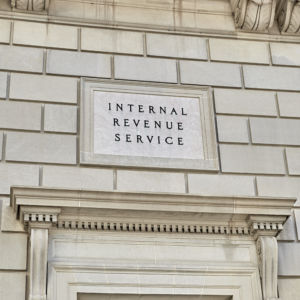The Internal Revenue Service (IRS) has failed to collect $9 billion from investors because of poor enforcement, an audit released Wednesday revealed.
The IRS is required to withhold earnings for investors who don’t properly file their income tax. Investors can have 28 percent of their earnings automatically withheld through the backup withholding tax. The Treasury Inspector General found the agency has failed to collect billions from investors who didn’t provide a proper Taxpayer Identification Number (TIN).
“[We] identified nearly $9 billion in backup withholding tax that was not withheld by payers submitting information returns with missing or incorrect TINs as required,” the audit stated. “While the legal requirements for backup withholding have been in effect for more than 30 years.”
The audit does add that the majority of returns do include the correct identification number. Improper TIN filings are the primary reason for why the backup withholding tax would be used. The IRS blames restructuring for why there has been an enforcement gap.
“Our review identified that the IRS’s use of this authority has been extremely limited,” the audit stated. “Current IRS management speculated that the subsequent restructuring of the IRS in Calendar Year 1998, and other reorganizations that have followed, have resulted in unintended gaps in the enforcement of backup withholding.”
The IRS identified 18.9 million improper information returns in 2013. The agency only responded to about 57 percent of those returns. The audit cites the use of filter criteria for why so many improper returns went without any response.
“The IRS uses filter criteria to exclude payers of specific information returns containing a missing or incorrect TIN,” the audit said. “We requested the justification for each of the filters to assess the IRS’s basis for excluding certain information returns from the notice issuance process.”
The IRS claims to not know why some of the filters were being used because they were developed many years ago. The audit also found 203,751 information returns in 2013 that included an incorrect identification number over four consecutive years.
“These returns reported payments totaling $17 billion,” the audit stated. “Payers were required to withhold nearly $5 billion from these payees, yet only $1 million was withheld.”
The Inspector General gave two suggestions for how the agency can address the issues. The IRS should establish a service-wide enforcement strategy that defines specific actions to identify and enforce improper returns. It also notes the agency should thoroughly review its exception criteria.
“The IRS agreed with this recommendation,” the audit notes. “The IRS will institute required updates within Information Technology capacity and resource restraints.”
The IRS added that the filter criteria were originally established to promote compliance and minimize payer burden. The audit notes that it is important for the IRS to establish specific exemption criteria while making sure notices are being sent out properly.

